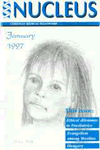Nebuchadnezzar's insanity was characterised by rapid onset (v33), with spontaneous remission after an unspecified interval (v34). His behaviour (eating grass and allowing his hair and nails to grow long) is suggestive of lycanthropy; a delusion in which the patient believes himself to be an animal.
This may be caused by a variety of psychiatric conditions. The self-neglect and social withdrawal ('he was driven away from people') are suggestive of depressive illness; which before the days of drugs and ECT normally resolved within two to three years. The rapid onset and resolution, along with the morbid nature of the delusions support this diagnosis, but the apparent recovery of complete insight (vv34-37) is atypical.
Schizophrenia is possible, but is usually associated with further relapses; not recorded in the text. The absence of elation or grandiosity makes mania unlikely; and an organic brain syndrome is virtually excluded by the king's complete return to normal.
On the evidence available Luke favours a hysterical (dissociative) state, because it encompasses both a psychological and spiritual dimension. By behaving like an ox Nebuchadnezzar 'split off' unacceptable feelings and avoided coming to terms with the consequences of his rebellion against God. Despite Daniel's warning to 'renounce (his) sins by doing what is right, and (his) wickedness by being kind to the oppressed' (v27), the proud leader of Babylon refused to humble himself and repent.
His illness was a fulfilment of prophecy:
'You will be driven away from people and will live with the wild animals; you will eat grass like cattle and be drenched with the dew of heaven. Seven times will pass by for you until you acknowledge that the Most High is sovereign over the kingdoms of men and gives them to anyone he wishes.'
The incident is a sober warning about human pride... but also a testimony to divine mercy and sovereignty.
Differential Diagnosis 20
Luke 1:5-25, 57-80
Zechariah, the father of John the Baptist, was 'unable to speak' after meeting an angel in the temple, but his 'tongue was loosed' shortly after John's birth. What diagnoses are possible? Which is most likely and why? More importantly, why did this event happen and what does it teach us?
Luke's opinion in the next issue.
































